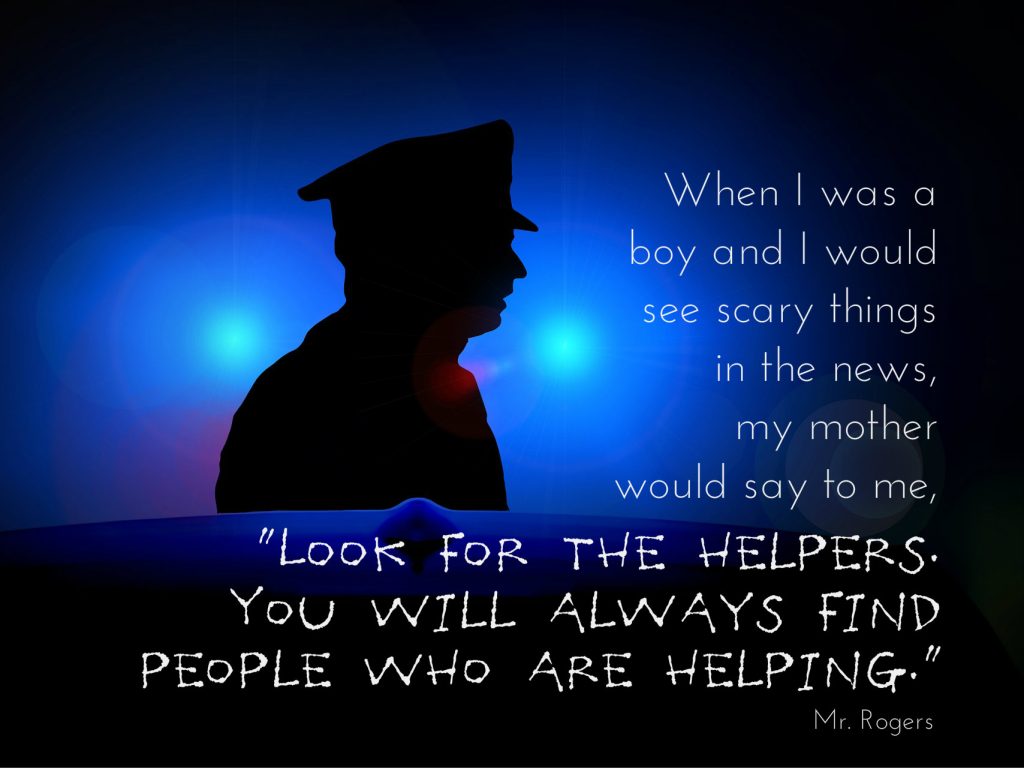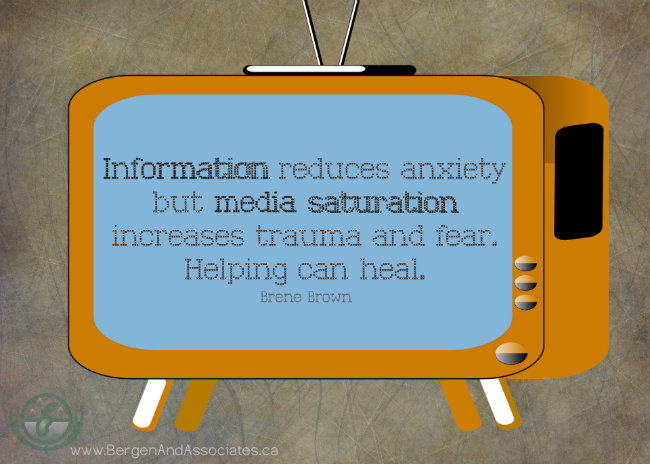
Today, September 11, is a day that I remember well in 2001. I was driving to work when I heard about the World Trade Center tower being hit as the top story of the news. By the time I got to my office, the second tower had been hit. By the time we finished our morning conversation, another plane had gone down. I was working in personal care home at the time, and as I would go off to get 20-30 minutes work done, and then go to a unit lounge to check the news on the TV, another plane had gone down, or a building had collapsed or something equally catastrophic had happened. It became increasingly difficult to leave the TV and get anything done that day.
At noon, I left the personal care home, and came to the office. One of the guys from another business had gone out and purchased a television during the morning, and we had it on…and visions of the towers falling, and grainy, shaky footage of the planes going into the building replayed over and over and over and over (and over) again. That day, and the next and the next. And the televisions were on, every where, it seemed, replaying the events over and over…as commentators and experts mulled over the tragedy, looking at it from every possible angle. It was impossible to ignore–and I wouldn’t have wanted to ignore it–I was riveted by the tragedy and the suffering and the loss. And it seemed important to honour lives lost by being very mindful of the tragedy in the days, weeks and months following–so I watched. We watched.
..and the towers kept falling. Over and over again.
In our collective consciousness, we could see the towers falling when we fell asleep, and when we woke. When we ate and talked and exercised. When we read the newspaper, went online, opened a magazine, or went to the coffee shop…we were saturated with the images and discussion of the tragedy.
These days, news is filled with violence in Syria, Iraq, and the Ukraine. Large planes with many people have gone down in recent months.
The Diagnostic and Statistical Manual of Mental Disorders specifically excludes media based exposure as a trigger for trauma response.
I’m not sure what they were thinking, but the evidence disputes that. Dr. Roxane Cohen Silver, in her research found that, “early and repeated exposure to violent images from the terrorist attacks of Sept. 11 and the Iraz War may have led to an increase in physical and psychological ailments up to three years” later.
Researchers surveyed a national sample of 4,675 adults two to four weeks after the 2013 Boston Marathon to assess acute stress responses to the bombings, the degree of direct exposure to the bombings, indirect exposure through media and prior exposure to other recent community-based traumas.
People exposed to six or more hours per day of bombing-related media coverage were nine times more likely to report high acute stress than those with minimal media exposure (less than one hour daily).
This acute stress is characterized by hypervigilance, feeling “on edge”, intrusive thoughts, avoiding reminders of the event, and feeling oddly detached. Sleep and other activities can be affected.
The effect of being traumatized by continually seeing these events replayed on the media can have a greater effect on those who have struggle with mental illness, those with a history of trauma in their own lives, and those who have been previously exposure to “collective traumas” such as the Newtown school shootings, and other violent and grisly events that we have collectively viewed repeatedly.
Dr.E. Alison Hoffman states clearly that:
“Our new findings contribute to the growing body of research suggesting that there is no psychological benefit to repeated exposure to graphic images of horror.”

There are some who need to avoid the discussion of traumatic events–even ones that occur halfway around the world:
- People who struggle with the residual effects of trauma from events as varied as childhood sexual abuse, a car accident, an abusive relationship. When that person’s body feels the tightening, chest constricting, heart pounding fear associated with these events, their body won’t know that the current media tragedy is triggering a memory of the past event. The memory won’t be acting as a memory–it will forget the memory is a memory–and the past trauma comes flooding all back.
- People who are exposed to witnessing trauma as a part of their job need a break from it. Police officers, military folk, paramedics, trauma nurses, sometimes therapists/social workers/psychologists–these people are trained and steeled to deal with it as a vital part of their job. They bear witness to horrors as a part of their job…but they need a break from it when possible. These folks will often avoid telling you such, but while they are willing to expose themselves to others’ trauma as part of their professional service, they just can’t hear it discussed in idle conversation.
- People who have had similar experiences may find that media events “hit a little close to home”. Robin Williams recent suicide created sleepless nights for many that week as they remembered a family member who attempted or completed suicide. These folks don’t have Post Traumatic Stress Disorder in that they are leading symptom free lives, but this event evokes powerful memories. What made it more difficult was that social media sites like Facebook had posts and reposts of videos, thoughts, and reflections on his life and his mental health and substance abuse challenges. It was difficult to get away from the sad news of Robin Williams without completing unplugging.
Look for the helpers…and there you will find hope.
I blogged about my experience visiting ground zero in New York City. I walked around the site, viewed the stories and artifacts…but was most struck by the memories and stories shared in St. Paul’s church, which was only a block away from the World Trade Center. It was a place of helping and healing. It was a place of goodness and support and love. It opened its doors to emergency and rescue personnel right away, and stayed open for months. That didn’t make the headlines, yet was just as much a part of the story as the buildings falling down…but I bet you didn’t know about it.
Recently, I wrote about the time I spent about 4 hours at the scene of a horrific bus accident on the Coquihalla Highway near Merritt, British Columbia. I saw the blood and the broken glass, heard the screams and the sirens, and felt the weltering sun and wind of the helicopters, and witnessed the injuries of the dozens of folks who were in the bus when it rolled. You saw that part of the story on the news, too.
But what I also saw was incredible teamwork of emergency personnel and folks who stopped instead of driving by. I saw pillows and blankets appear out of no where. They could have only come from passersby. I saw hugs and gentle talk to victims. I saw competence and caring. I saw victims caring and weeping for their fellow victims. You didn’t see all that in the news.






Write a Comment